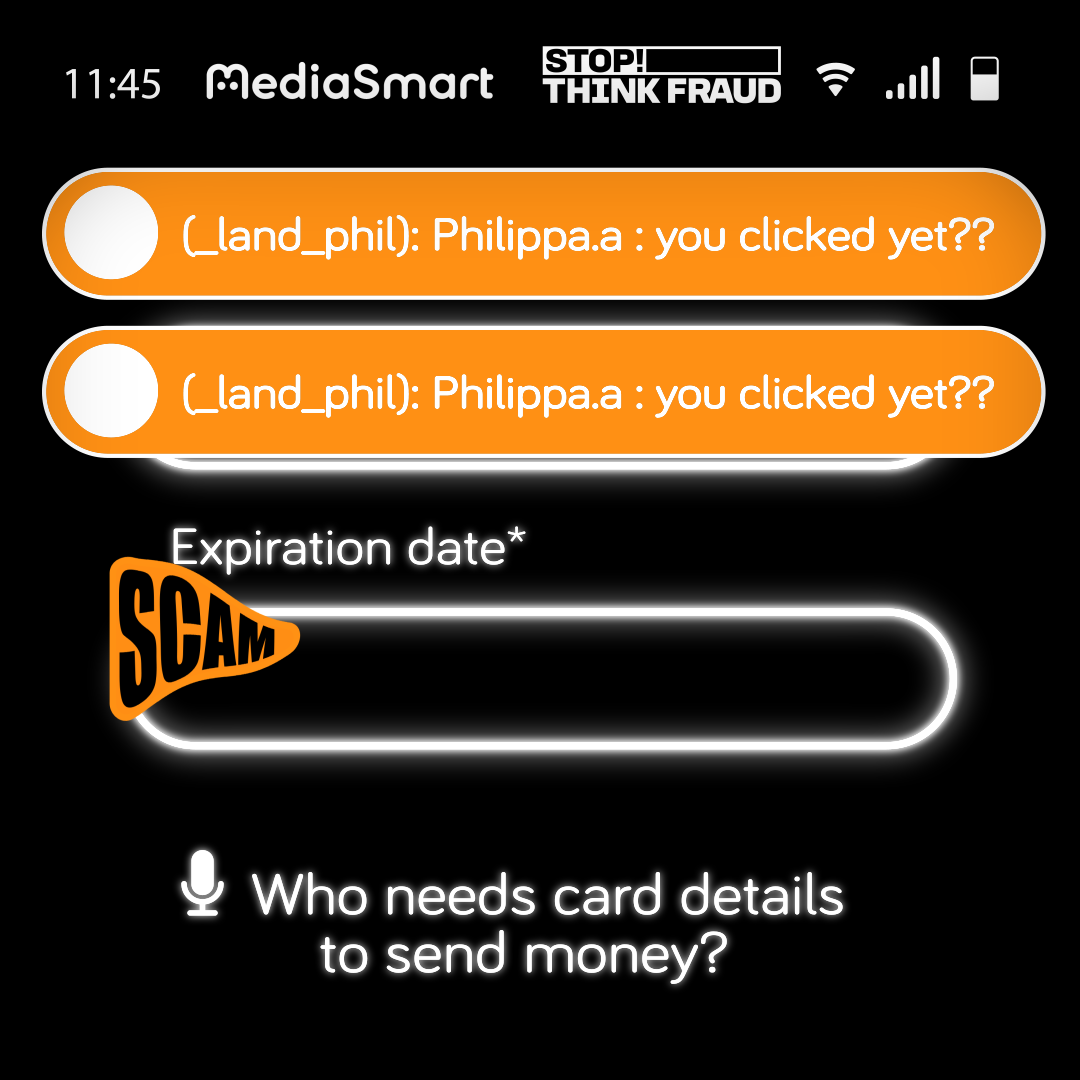Safer Internet Day: Helping Young People Avoid Scam Ads
Safer Internet Day is shining a spotlight on scams so Media Smart is equipping young people with the tools and knowledge they need to protect themselves from fraud, giving them increased confidence in finding their way around the online world.
I have been at the helm of the advertising industry’s education programme, Media Smart, for ten years and have seen first hand how technology is transforming advertising and the many ways it can be delivered into people’s lives. It’s why we are committed to developing and promoting learning resources to help explain these changes.
This year’s Safer Internet Day focus on scams is particularly timely, with fraudulent online activity growing in frequency and sophistication. Over 1,000 young people in the UK are scammed every month, according to Action Fraud.
‘Scam Flags add up to a Scam’
This is why campaigns like Media Smart’s ‘Scam Flags add up to a Scam’ are critical. Designed to help young people identify, and avoid, fraudulent ads online, the initiative was first launched last year in support of the UK Government’s National Campaign Against Fraud – STOP! THINK FRAUD. I’m delighted it has now gained the backing of the new Fraud Minister.
Media Smart’s priority is young people so our campaign specifically targets the topics that 13–25-year-olds have told us they are most worried about. We have worked closely with youth-focused communications agency, Livity, to develop engaging animated films and resources that deliver a clear message about ‘scam flags’. This might be about cryptocurrency scams or fake online shopping deals, unauthorised access to webcams or false scholarship offers. A build-up of ‘red flags’ highlights when an offer seems too good to be true, it probably is.
Our online toolkit provides practical advice on identifying scams, reporting them to the appropriate authorities – including social media platforms, Action Fraud, and the Advertising Standards Authority – and where those affected can go for support.
The ‘Scam Flags add up to a Scam’ campaign has already achieved significant reach, with 182 million media impressions to date. We’ve taken our message directly to young people in their learning environments, including colleges and university accommodation, and through targeted social media campaigns to where they hang out online. The campaign provides support for both students, teachers and parents, offering a downloadable guide and video content for use in the classroom and at home, all accessible through a dedicated hub on the Media Smart website.
 Supporting the Online Advertising Taskforce
Supporting the Online Advertising Taskforce
There is a broader significance to this campaign as Media Smart’s work is highly aligned to the objectives of the Government’s Online Advertising Taskforce, one of which is examining what industry can do more to address scam ads.
As Mark Lund, Deputy Chair of the Online Advertising Taskforce, has said, “Scam advertising is an ongoing challenge in our online ecosystem and a key priority for the Online Advertising Taskforce. Media Smart’s latest campaign is a critical step in equipping young people with the knowledge and skills they need to navigate the online world safely and responsibly and will complement the industry’s existing efforts to respond to illegal harms.”
Fraud Minister Lord Hanson said: “Fraud is an utterly appalling crime, and the sad truth is that young people too often find themselves targeted.
“That’s why I’m delighted to lend our support to good work like this, through the Stop! Think Fraud campaign, which provides children and young people the practical advice they need to stay protected.
“But industry must also go further and faster to ensure that people of all ages are safe on their networks and platforms. More must be done to meet the scale of this threat head on.”
Beyond Safer Internet Day
I believe everyone in our industry – whether brand, agency, media owner or tech company – has a shared responsibility to invest in media literacy throughout the year. Support for Media Smart has gone from strength to strength in the last decade – we have doubled the number of industry supporters, to help reach more than 12 million young people through our resources.
Our recent campaigns have included a £500,000 political advertising education drive which saw 16.5 million ad plays, all funded through donated media inventory by cross-industry supporters. This was designed to help first time voters understand the ads they were seeing in the run up to the General Election. We also offer a creative careers inspiration workshop, developed in partnership with media agency, Omnicom Media Group UK. To date, 55 facilitators from the agency have been trained to deliver this workshop content to students across the UK.
Given the imperative to do more to protect young people online, we are keen to work further with Government especially on future campaigns that help empower young people to critically evaluate all online content. We want to create additional resources – like those on scams – to support the ambition of a safer online world.
If you would like to learn more about Media Smart’s work, or how we can deliver our resources to schools in your constituency, please email mediasmart@adassoc.org.uk.
